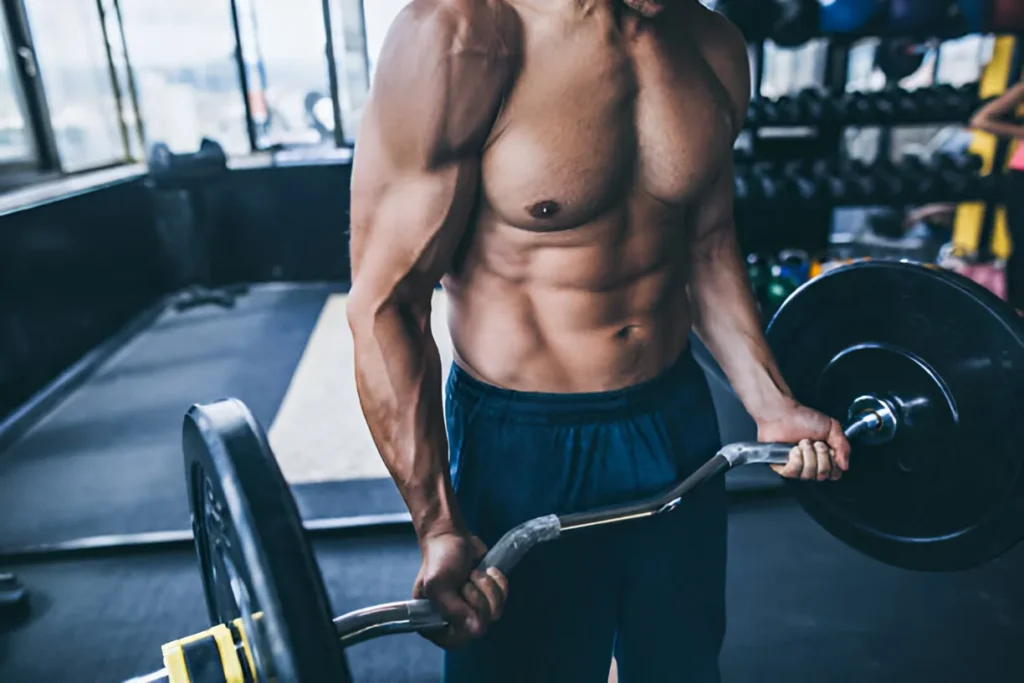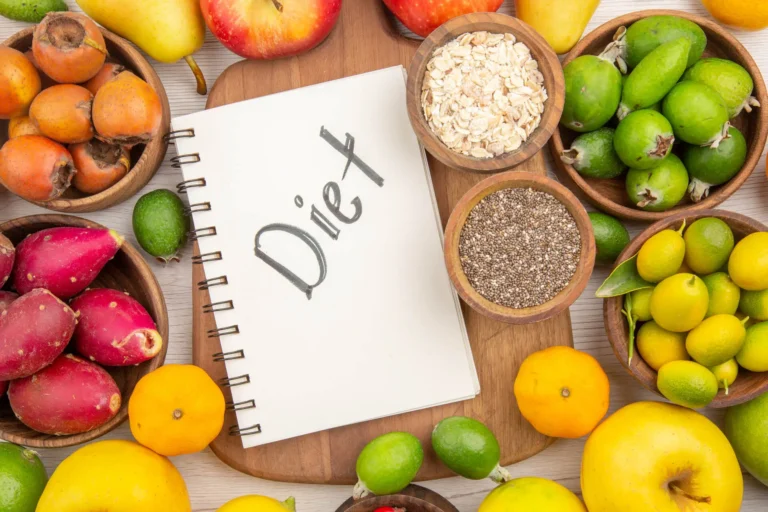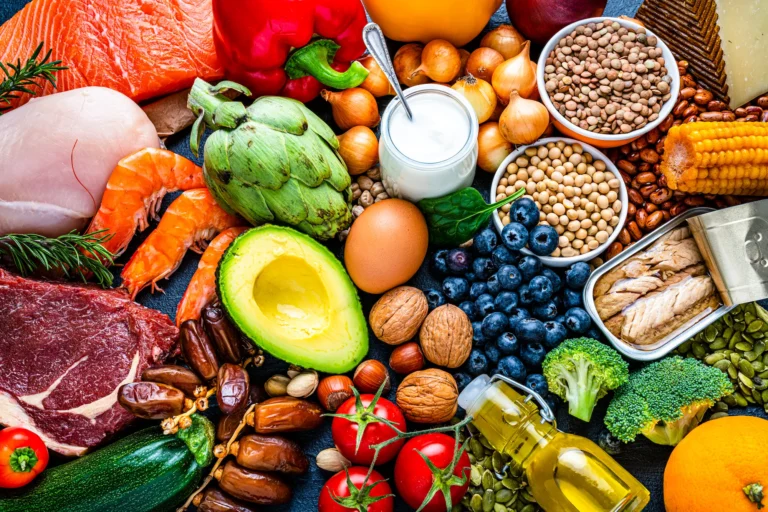Nutrition for Muscle Gain: Tips for Effective Result
Muscle gain is not just about training, which entails weight lifting; it needs the evaluation of the nutritional value of foods as well. Appropriate nutrition interventions guarantee that the body receives adequate nutrients for muscles to repair, build and gain more mass.

Muscle gain nutrition aims at supplying the proper daily energy intake, the proper macronutrient ratio, and micronutrient intake necessary for increased muscle mass.
In this guide, we will discover muscle-building nutrition’s key features, familiarize ourselves with the essential foods, and learn how to achieve the correct nutrition for muscle gain.
Understanding the Basics of Muscle Gain
Muscle built up is also referred to as hypertrophy, this is the common occurrence when necessarily of the muscle fibers causes it to expand due to resistance training and well balanced diet.
For muscle mass gain the body must be in a positive energy balance, that is in energy intake above energy expenditure.
Also, the amount of protein that you consume to repair and build new muscle tissue have equally to be adequate.
How Does Muscle Growth Happen?
Muscle hypertrophy is a reserve to strength training. Because when you do activities like weightlifting, you make small rips in your muscle tissue.
In the course of the recovery, these fibers maintain and improve their strength as well as size. However, this process demands nutrient replenishment particularly proteins to fill the injured tissues or parts of the body.
The three key factors for muscle growth are:
- Progressive overload: Gradually increasing the intensity of your workouts.
- Adequate nutrition: Providing the body with the right nutrients to support repair and growth.
- Rest and recovery: Allowing your muscles time to heal and grow.
Macronutrients for Muscle Growth

To maximize muscle gain, it’s essential to focus on the three primary macronutrients: Protein, carbohydrates and fats. All have a specific function when it comes to nurturing your exercise regimen.
1. Protein: The Building Block of Muscle
Of all the nutrients, none is as important in the development of muscles like protein. It supplies the amino acids needed for the reconstruction of the fibres of muscle tissues.
When resistance training is done, the muscle protein is turned over more indicating an increase in muscle mass protein building and breaking.
Recommended Protein Intake:
- General guideline: 1.6–2.2 grams of protein per kilogram of body weight per day.
- Athletes or bodybuilders: 2.0–2.5 grams per kilogram of body weight for optimal muscle growth.
Best Sources of Protein:
- Animal-based: Chicken, turkey, lean beef, eggs, fish, dairy products (milk, yogurt, cottage cheese).
- Plant-based: Tofu, tempeh, lentils, chickpeas, quinoa, and protein-rich vegetables like broccoli.
2. Carbohydrates: The Primary Energy Source
Carbohydrates are important for their energy supply that is required for energy-giving exercises.
For example, during a very vigorous activity, the body is using glycogen that is stored in muscles, as well as liver.
Carbohydrates replenishes glycogen, thereby helping your body to have enough energy when working out and when resting.
Recommended Carbohydrate Intake:
- Moderate activity: 3–5 grams per kilogram of body weight per day.
- High-intensity training: 5–7 grams per kilogram of body weight per day.
Best Sources of Carbohydrates:
- Complex carbs: Whole grains (brown rice, oats, quinoa), sweet potatoes, and legumes.
- Simple carbs: Fruits, honey, and sports drinks (useful post-workout for quick glycogen replenishment).
3. Fats: Essential for Hormonal Balance
The diet contains fats because hormones are manufactured from fats, and testosterone is important for muscle build-up. Nevertheless, fats are calories anyway, and are essential for a muscle building diet.
Recommended Fat Intake:
- 20–35% of your total daily calories should come from fats.
Best Sources of Healthy Fats:
- Monounsaturated fats: Olive oil, avocados, nuts (almonds, cashews).
- Polyunsaturated fats: Fatty fish (salmon, mackerel), flaxseeds, chia seeds, walnuts.
- Saturated fats (in moderation): Coconut oil, dairy products, and grass-fed meats.
Micronutrients for Muscle Growth
While macronutrients provide the bulk of your energy and building materials, micronutrients (vitamins and minerals) are equally important for optimizing muscle gain.
Key Micronutrients for Muscle Gain
- Vitamin D: Enhances muscle function and supports bone health.
- Sources: Sunlight, fortified milk, fatty fish, egg yolks.
- Calcium: Essential for muscle contractions and bone health.
- Sources: Dairy products, leafy greens, fortified plant-based milk.
- Magnesium: Plays a role in muscle relaxation and energy production.
- Sources: Nuts, seeds, whole grains, dark leafy greens.
- Zinc: Supports immune function and testosterone production.
- Sources: Red meat, shellfish, beans, nuts.
- Iron: Necessary for oxygen transport and energy production.
- Sources: Red meat, poultry, fortified cereals, spinach.
- B Vitamins: Aid in energy metabolism and red blood cell production.
- Sources: Whole grains, lean meats, eggs, and leafy greens.
Meal Timing and Frequency for Muscle Gain

The timing of your meals can significantly influence your muscle-building results. Consuming the right nutrients at the right time ensures that your body has a continuous supply of energy and building blocks for muscle repair.
Pre-Workout Nutrition
Eating a balanced meal before your workout provides energy and prevents muscle breakdown during exercise.
Ideal Pre-Workout Meal:
- Timing: 1–2 hours before training.
- Components: A mix of protein (20–30g) and complex carbohydrates (40–50g).
Examples:
- Grilled chicken with brown rice.
- Greek yogurt with berries and oats.
Post-Workout Nutrition
Post-workout nutrition is critical for muscle recovery and glycogen replenishment. This is often referred to as the anabolic window, a period when your muscles are most receptive to nutrients.
Ideal Post-Workout Meal:
- Timing: Within 30–60 minutes after training.
- Components: Fast-digesting protein (20–40g) and simple carbohydrates (40–60g).
Examples:
- Protein shake with a banana.
- Scrambled eggs with white toast.
Meal Frequency
While meal frequency doesn’t drastically affect muscle gain, consuming 4–6 meals per day can help maintain energy levels and provide a steady supply of nutrients.
Hydration and Muscle Growth
Proper hydration is often overlooked in muscle-building discussions, but it’s crucial for optimal performance and recovery. Water aids in nutrient transport, joint lubrication, and temperature regulation.
Hydration Tips:
- Daily water intake: Aim for at least 3–4 liters per day.
- During workouts: Sip water throughout your exercise to stay hydrated.
- Electrolytes: In intense training or hot climates, consider electrolyte drinks to replace lost sodium and potassium.
Best Foods for Muscle Growth
Incorporating nutrient-dense foods into your diet can enhance muscle growth. Below is a list of some of the best foods to include:
1. Protein-Rich Foods
- Chicken breast
- Turkey
- Eggs and egg whites
- Cottage cheese
- Tofu and tempeh
2. Carbohydrate Sources
- Quinoa
- Sweet potatoes
- Oats
- Whole grain pasta
- Fruits like bananas and berries
3. Healthy Fats
- Avocados
- Peanut butter (natural)
- Fatty fish (salmon, sardines)
- Seeds (chia, flax)
4. Snacks and Supplements
- Protein bars
- Greek yogurt
- Nuts and trail mix
- Protein powders (whey, casein, plant-based)
The Role of Supplements in Muscle Gain
While whole foods should form the foundation of your diet, certain supplements can enhance your results by filling nutritional gaps and improving performance.
Top Muscle-Building Supplements
- Protein Powder: Provides a convenient way to meet daily protein requirements.
- Creatine: Enhances strength and muscle performance by increasing energy production.
- Branched-Chain Amino Acids (BCAAs): May reduce muscle soreness and promote recovery.
- Beta-Alanine: Improves endurance and reduces fatigue during high-intensity workouts.
- Multivitamins: Ensure you meet daily micronutrient needs.
Common Mistakes to Avoid in Muscle Gain Nutrition
1. Not Eating Enough Calories
A common mistake is underestimating your calorie needs. Without a caloric surplus, muscle growth will be limited.
2. Skipping Protein Intake
Protein is vital for muscle repair. Failing to meet your daily protein requirements can hinder progress.
3. Inconsistent Meal Timing
Irregular eating patterns can lead to energy dips and reduced performance during workouts.
4. Over-reliance on Supplements
Supplements are beneficial but should not replace a balanced diet rich in whole foods.
5. Neglecting Hydration
Dehydration can impair muscle function and recovery.
Sample Muscle Gain Meal Plan
Below is a sample meal plan for a day focused on muscle gain:
Breakfast
- Scrambled eggs (3 whole, 3 egg whites)
- Whole grain toast (2 slices)
- Avocado slices
- Black coffee or green tea
Mid-Morning Snack
- Greek yogurt (200g) with mixed berries
- A handful of almonds
Lunch
- Grilled chicken breast
- Quinoa and steamed broccoli
- Olive oil drizzle for added fat
Pre-Workout Snack
- Banana with peanut butter
- Protein shake (optional)
Post-Workout Dinner
- Grilled salmon
- Sweet potato mash
- Sautéed spinach
Evening Snack
- Cottage cheese (200g) with a tablespoon of flaxseeds
Final Thoughts
Achieving muscle gain requires more than just hard work in the gym; it demands a structured and consistent approach to nutrition.
By focusing on the right balance of macronutrients, ensuring proper meal timing, and incorporating micronutrients, you can optimize your diet to support muscle growth.
Remember, the journey to building muscle is a combination of training, nutrition, and recovery. Tailor your diet to your specific goals, stay consistent, and watch as your hard work transforms into measurable results.







